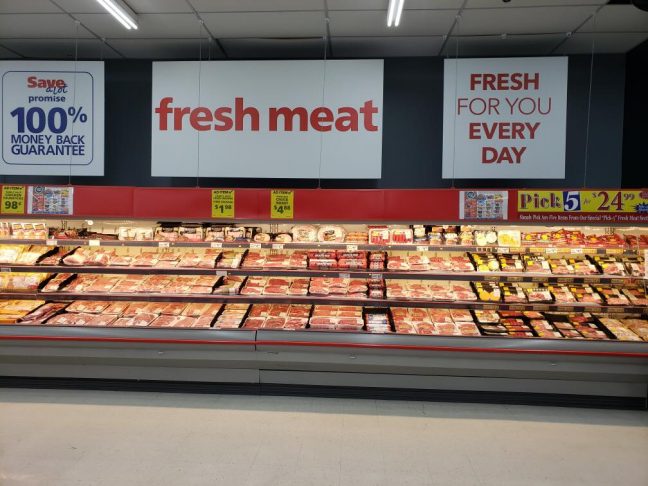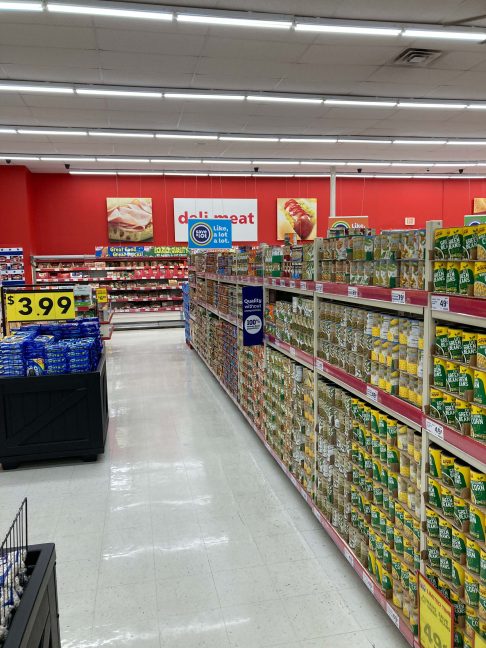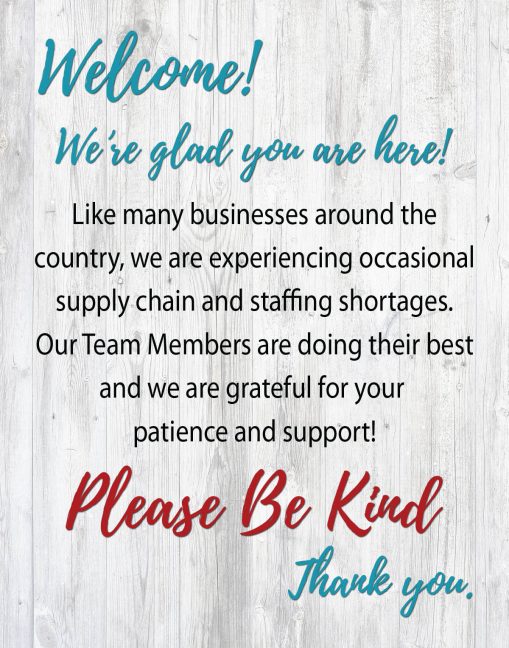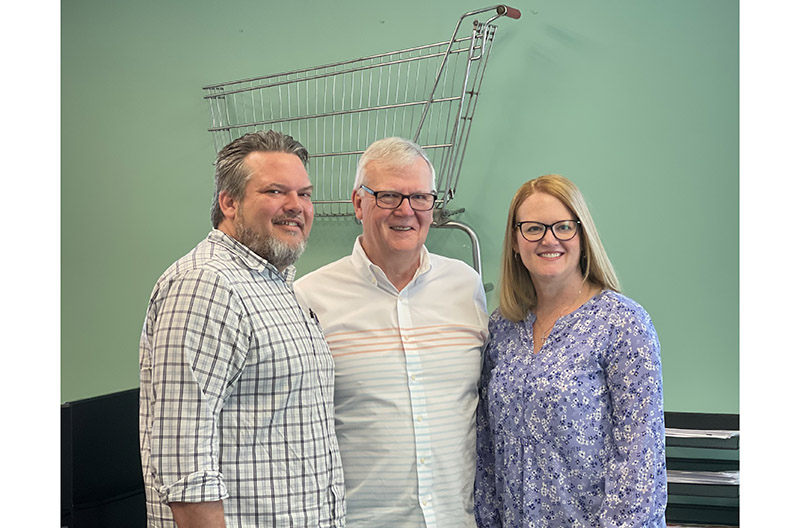Mike Planalp, owner of Blackford County Foods, in Fishers, Indiana, sees the biggest challenge to independent grocers and their growth is the federal government’s failure to enforce the Robinson-Patman Act of 1936.

The act is an antitrust law that guarantees a competitive grocery marketplace.
He operates six Save A Lot food stores in Indiana, a small superette and a convenience store.
“It’s just that we ended up getting discriminated against on pricing and service levels,” he said. “I know NGA’s really pushing to get this changed, because otherwise we’re just destined to have these mega companies control the food chain from whether it be the manufacturing end or the retail end. I think there should still be room for us independents out here.”
Planalp bought his first store in 1981.
“I’d worked for a chain for a couple of years, and I’d worked for an independent for about eight years. I just started out as a kid,” he said. “I was 26 when I bought my first store. That was at a time when small stores still actually thrived. SuperValu at the time was a strong wholesaler, so they were a good network. A lot has changed since then.”
Big box retailers moving in had a “huge, huge effect” on the independent grocery industry.
“I actually could see by the end of the 1980s that the small-town grocer was going to be becoming more and more extinct,” Planalp said. “I started studying Save A Lot about 1989, though I didn’t put in my first store until after SuperValu bought them, and that was in 1994.”

His first Save A Lot store was in central Indiana, and the company has grown over the years.
“It turned out to be a big move, even though I still have one of my small-town stores. I have a real passion for that. Probably the likelihood of keeping that store going over the years was just a matter of determination and wanting to kind of stick with my roots, because our latest challenge there was Dollar General moving across the street.”
With new competition in a town of about 2,000 people, Planalp said they “just reinvented ourselves again and are actually doing quite well as a result.”
However, the Save A Lot stores are his main business. He shared that getting into those in the 1990s probably kept him in business.
“It was a very strong program at the time. We went through some challenges here in recent years. We’ve had some real leadership challenges in Save A Lot, but we’re hoping that starts to turn itself around here pretty soon,” Planalp said.
When the COVID-19 pandemic hit, Blackford Foods experienced what many grocery stores across the nation did.
“We were really just swamped and overwhelmed in the beginning,” Planalp said. “But we had enough resources to where we could get product and had enough connections that we hadn’t suffered some of the supply chain things that the big stores had. We were able to be maybe a little more nimble and get stock back up from wherever we could find product, so we were able to fill the gaps.
“Even today, as the pandemic is in whatever form it is, our stores are still very, very full. It just takes a lot of work to do that.”
According to Planalp, he was able to work with smaller distributors to get product and, whenever possible, he would load his warehouse with product and redistribute it among his stores.
“We might not have the exact item that someone wanted or the exact size, but we had something. I think that’s worked out really well for us,” he said. “We’ve had a good year this year. We’re kind of bouncing back with customer count, which was a little bit of a victim of the pandemic. There were less trips to the stores, but we’re seeing that change now.”

Getting people back in the stores is important for the company, as it doesn’t have a strong e-commerce program.
Blackford Foods has Instacart available in four of its markets. Planalp conceded the company is “probably a little late to the game on that.” He knows e-commerce will probably become more important going forward, and he may have to look at some more options.
“But because of the fact that we’re a limited assortment store and focus on price, the customer is just not willing to take on some of those extra costs,” he said. “And we have to watch our expenses.”
Finding labor is always a challenge, with Planalp noting that his management team is all getting older.
“Probably our biggest challenge is we’ve got several of us in our 60s, and we’ve got to add some young blood…we have to approach employees a little bit differently than maybe you would have 10 years ago, 20 years ago,” he said. “All in all, I think just keeping them engaged and having the family atmosphere in the store helps us retain people. But we do have to work harder at finding the right people.”
Wage pressures are also a challenge. “Certainly, our employees are such a big part of everything that we do what we’ve got to, to take care of them,” he said.
Blackford Foods stores are focused on the meat department, counting on it for about a third of their business.
“As you know, meat cutters are a little hard to come by. We have to do some training,” Planalp said. “Once again, there’s some of the guys that are getting a little older, so we do things a little bit different.”
Inflation presents another challenge, but Planalp can recall the inflation of the late 1970s and the ‘80s. “It’s not something that I haven’t seen before, but most people maybe haven’t experienced it. So it’s making for interesting times,” he said.
Planalp plans to remodel four of his stores in the next 12 months but will leave growing the company to his children.
“I’m 68 years old, so I’m not sure that I really want to tackle too many more,” he said. “I have a son and daughter in the business. If they want to take another step, that’s going to be their decision.”
His daughter, Angela Proctor, handles all the office and HR for the company. His son, Jeffrey Planalp, is “more out in the field” and involved in day-to-day store operations.
“After all these years, I’ve just seen a lot of changes and we just all have to keep changing with it,” he said. “I think the point that I made about fairness and pricing and NGA’s goal is probably the biggest issue of our times for the independent grocer.”
For more information, click here.

